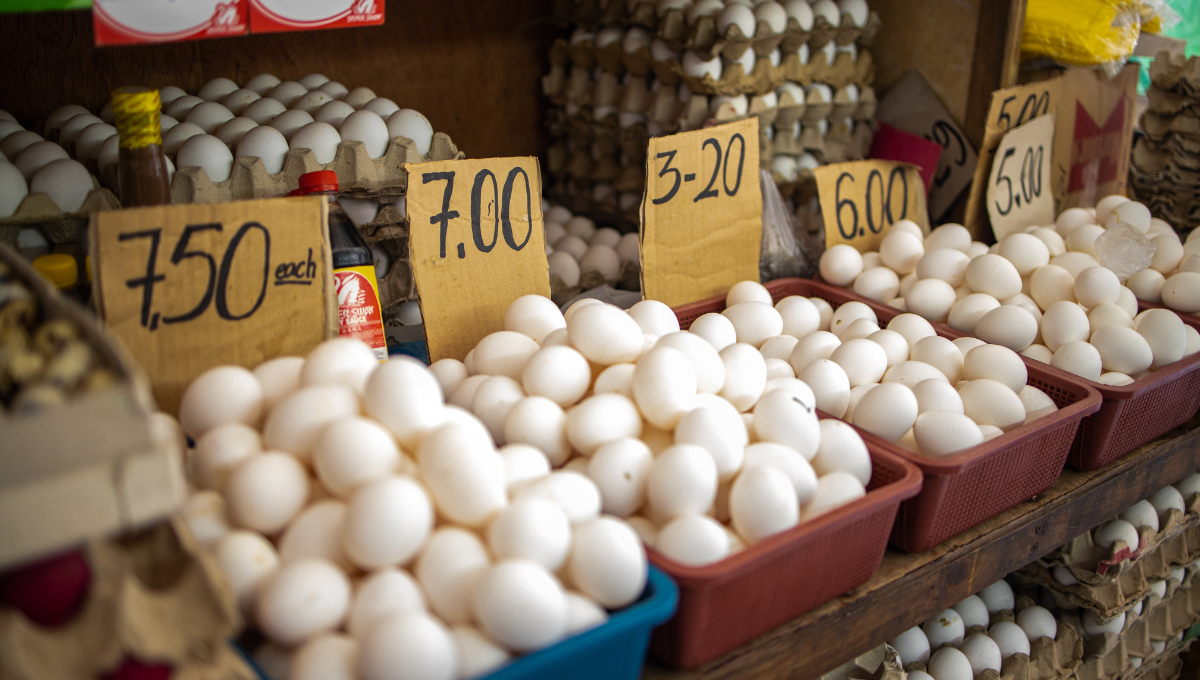
Why Are Egg Prices Still So High and How You Can Save Now?
Introduction
Egg prices have been rising in recent years, and it appears that this trend will continue into 2023. Many customers are perplexed as to why this is the case and what factors are causing the high prices. In this blog post, we will look at some of the major causes of high egg prices, such as supply chain disruptions caused by COVID-19 and bird flu.
COVID-19-Induced Supply Chain Disruptions:
The COVID-19 pandemic has had a significant impact on the egg industry, causing supply chain disruptions that have resulted in higher prices.
Employee shortages were one of the primary ways COVID-19 disrupted the egg supply chain. Many egg producers rely heavily on a consistent workforce to keep their operations running, and the pandemic forced many employees to become ill or stay at home to care for family members. This resulted in a labor shortage in egg production facilities, resulting in reduced output and delays in getting eggs to market.
Increased costs were another way that COVID-19 disrupted the egg supply chain. As the pandemic spread, many egg producers were forced to institute new safety measures in order to protect their workers and prevent the virus from spreading. These measures, such as providing personal protective equipment and implementing social distancing protocols, increased egg production costs significantly. Furthermore, the pandemic increased the cost of egg transportation and distribution because many businesses faced increased demand for goods and services.
Changes in consumer demand also contributed to the disruption of the egg supply chain. As the pandemic spread, many people stocked up on eggs, causing shortages and higher prices. This caused some egg producers to shift their focus from producing eggs for commercial sales to producing eggs for stockpiling, further reducing consumer egg availability.
Finally, the pandemic disrupted the transportation and distribution of eggs. Many businesses faced delays and disruptions in getting goods to market due to lockdowns and travel restrictions. This was especially true for perishable goods such as eggs, which must be transported and handled with caution to avoid spoilage.
COVID-19 disrupted the egg supply chain in a variety of ways, ranging from employee shortages and increased costs to changes in consumer demand and disruptions in transportation and distribution. These disruptions resulted in lower egg production and higher egg prices, having a significant impact on the egg industry.
The Avian Influenza:
The bird flu is another major contributor to high egg prices. Avian influenza, also known as bird flu, has infected egg-producing birds in a number of countries around the world, reducing the number of eggs available to consumers. The bird flu causes the culling of millions of birds, which has a significant impact on the egg industry, as producers must rebuild their flocks, which can take months.
Bird flu, also known as avian influenza, is a highly contagious disease that affects poultry, including egg-laying chickens and ducks. Bird flu outbreaks can have a significant impact on the egg industry because they frequently result in the culling of millions of birds. This is done to keep the disease from spreading and to keep the remaining birds from becoming infected.
One of the primary ways that bird flu affects egg production is by reducing the number of available egg-producing birds. When a flock of birds becomes infected with bird flu, they may become ill and die, or they may need to be culled to prevent the disease from spreading. This means that there are fewer birds available to lay eggs, resulting in a decrease in egg production.
Increased costs are another way that bird flu affects egg production. When there is an outbreak, egg producers may need to take precautions such as quarantining their flocks and testing birds for the disease. These measures can be expensive and add significant costs to egg production. Furthermore, bird culling causes significant financial losses for egg producers because they must rebuild their flocks and wait for the new birds to mature before they can begin producing eggs again.
Changes in consumer demand caused by bird flu can also have an impact on egg production. When outbreaks of bird flu are reported, consumers may become concerned about the safety of eggs and choose not to purchase them. This can lead to a decrease in egg demand, which can affect egg producers’ income and cause them to reduce or stop production entirely.
Finally, bird flu can disrupt egg transportation and distribution. To prevent the spread of the disease during an outbreak, it may be necessary to restrict the movement of birds and eggs. This can cause delays and disruptions in getting eggs to market, affecting the egg industry further.
Overall, bird flu (avian influenza) has the potential to significantly reduce egg production. It has the potential to reduce the number of egg-producing birds, raise costs, impact consumer demand, and disrupt egg transportation and distribution. These factors may result in decreased egg production and higher consumer prices.
Conclusion:
There are numerous reasons for the high egg prices in 2023. The COVID-19 pandemic and bird flu have both played significant roles in disrupting the egg supply chain, resulting in higher consumer prices. While we have no control over these factors, it is important to note that egg prices may fluctuate as a result of these disruptions. However, keep in mind that these disruptions will eventually pass and egg prices will return to normal.
How to Save Money During Elevated Prices:
Many people are looking for ways to save money on eggs while still eating them as part of their diet. Here are a few ways to save money:
1. Buy in bulk:
Buying in bulk can help you save money over time. Many supermarkets provide bulk discounts on eggs, which can help you save money if you buy a large quantity at once. You can also look for local farmers or co-ops that sell bulk eggs, which can be a great way to get fresh eggs at a lower cost.
2. Look for sales and discounts:
Supermarkets and other retailers frequently run sales and discounts on eggs, so look for these deals before you buy. This can help you save money on eggs, especially if you can find a store with a good deal.
3. Think about alternatives:
If you want to save money on eggs, you should think about alternatives. In baking recipes, for example, you can experiment with egg substitutes such as flax eggs or chia eggs. You can also look for egg-free recipes, such as banana pancakes, which are made with mashed bananas rather than eggs.
4. Use eggs before they expire:
Although eggs can be stored in the refrigerator for several weeks, it is critical that they be used before they expire. Marking the carton with the date you purchased the eggs is an easy way to ensure that you use them before they expire. This will remind you when to use the eggs before they expire.
5. Prepare eggs in a variety of ways:
Eggs are a versatile ingredient that can be prepared in a variety of ways. Instead of simply frying or scrambling eggs, experiment with baking, boiling, or making omelets or frittatas. This will not only add variety to your meals but will also save you money because you will not need to purchase additional expensive ingredients.




















